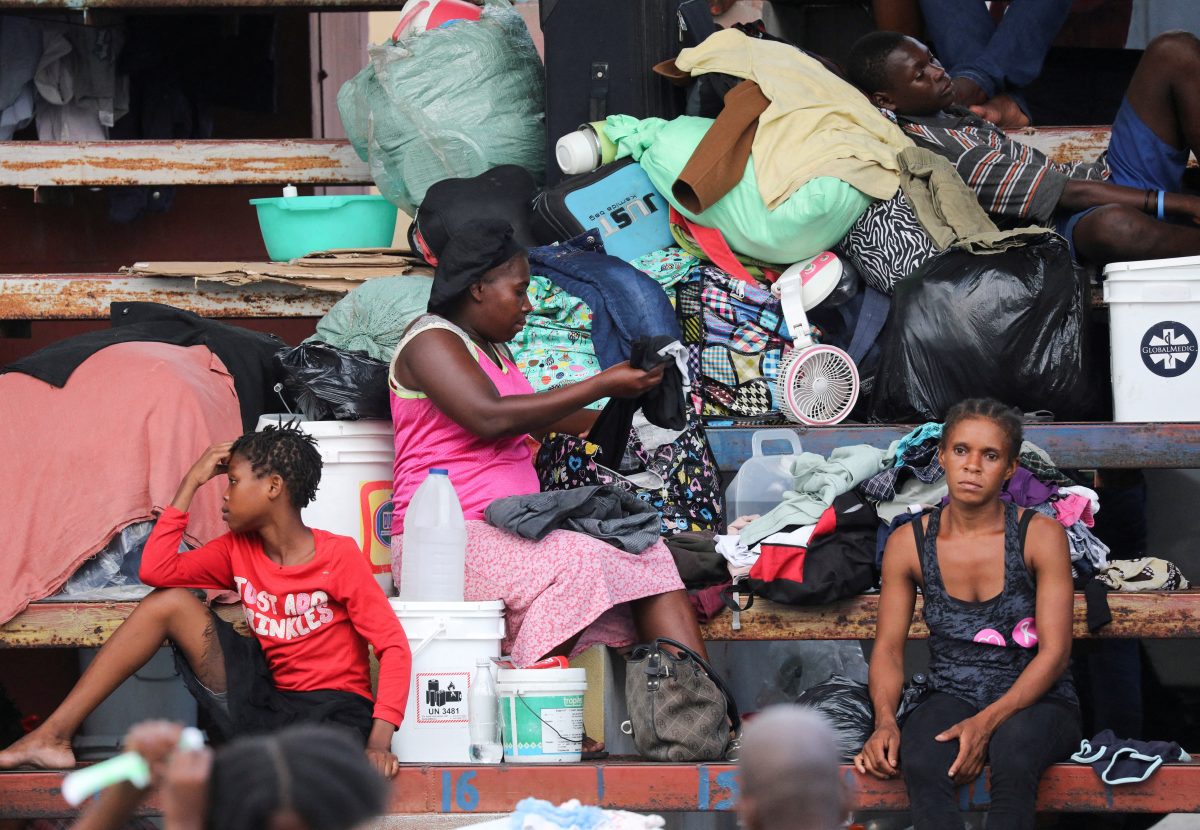UNITED NATIONS, (Reuters) – The United Nations Security Council is set to vote on Monday to approve the deployment of foreign police to Haiti and authorize the use of force to help the Caribbean country fight violent gangs that have largely overrun the capital Port-au-Prince.
A U.S.-drafted resolution, seen by Reuters, would also expand a U.N. arms embargo that currently applies only to designated individuals to include all gangs, which China wanted. Haitian officials have said guns used by gangs are believed to be mostly imported from the United States.
Haiti asked nearly a year ago for international help and U.N. Secretary-General Antonio Guterres told the 15-member council last month that a “robust use of force” by a multinational police deployment and the use of military assets was needed to restore law and order in Haiti and disarm gangs.
It was not immediately clear how China and Russia – which are veto powers along with the United States, France and Britain – would vote on the U.S.-drafted resolution. Diplomats said they are wary of authorizing the blanket use of force.
China wanted the resolution to state that Haiti had to notify the Security Council of the countries taking part in the mission before U.N. authorization would take effect.
The U.S. amended the draft text to say that U.N. authorization would be given to countries that notified Secretary-General Antonio Guterres of their participation in the mission.
A Security Council resolution needs nine votes in favor and no vetoes to be adopted.
The response to Haiti’s request for help was delayed due to a struggle to find a country willing to lead a security assistance mission. Kenya stepped forward in July with a pledge of 1,000 police. The Bahamas then committed 150 people, while Jamaica and Antigua and Barbuda are also willing to help.
Guterres has urged countries, particularly in the Americas, “to continue to build on this new momentum.”
Countries have been cautious of supporting the unelected administration of Prime Minister Ariel Henry, who has said fair elections cannot be held with the current insecurity. Haiti has been without any elected representatives since January.
The security assistance mission, while approved by the U.N. Security Council, would not be a United Nations operation.
U.N. peacekeepers were deployed to Haiti in 2004 after a rebellion led to the ouster and exile of then-President Jean-Bertrand Aristide. Peacekeeping troops left in 2017 and were replaced by U.N. police, who left in 2019.
Haitians are wary of an armed U.N. presence. The Caribbean country was free of cholera until 2010, when U.N. peacekeepers dumped infected sewage into a river. More than 9,000 people died of the disease, and some 800,000 fell ill.

